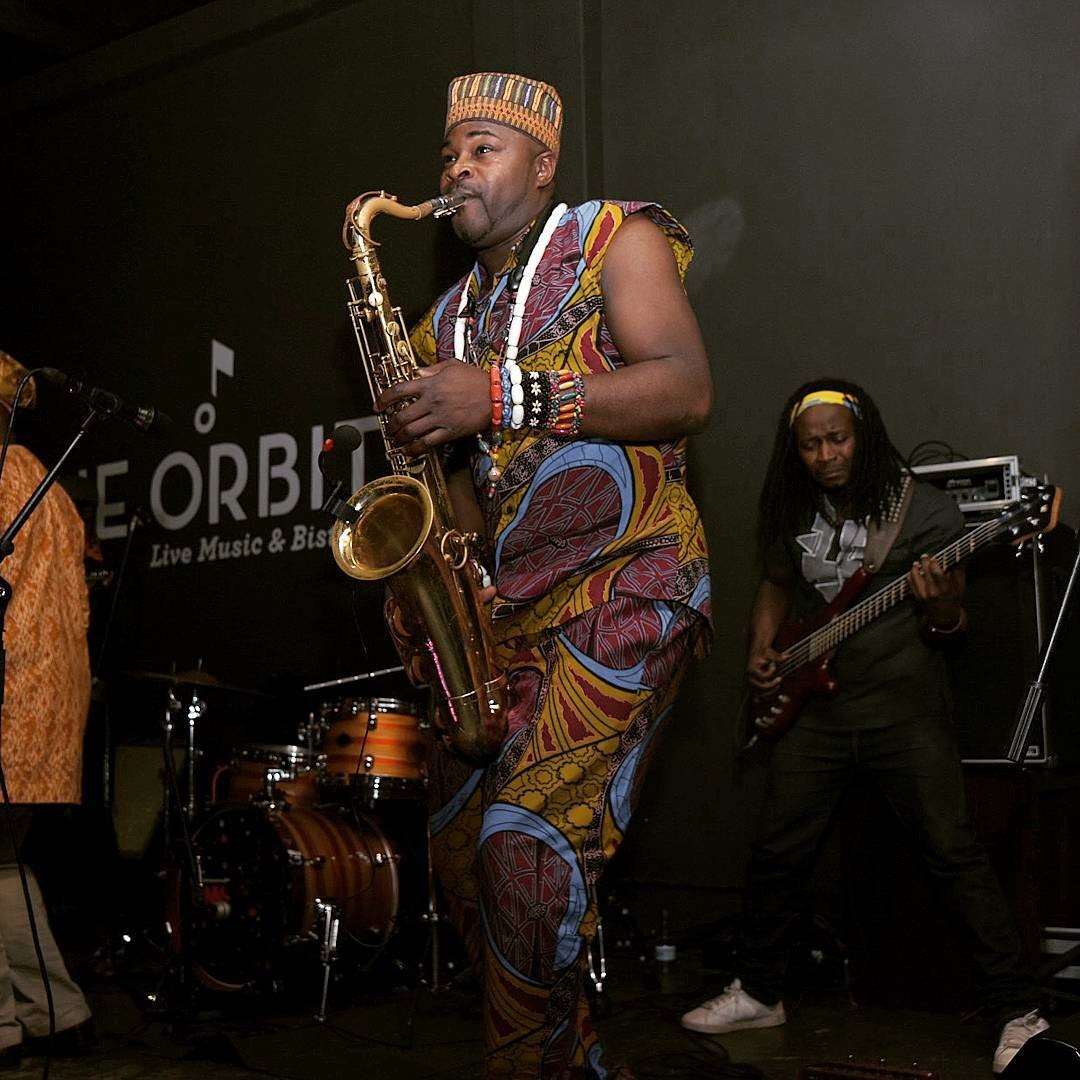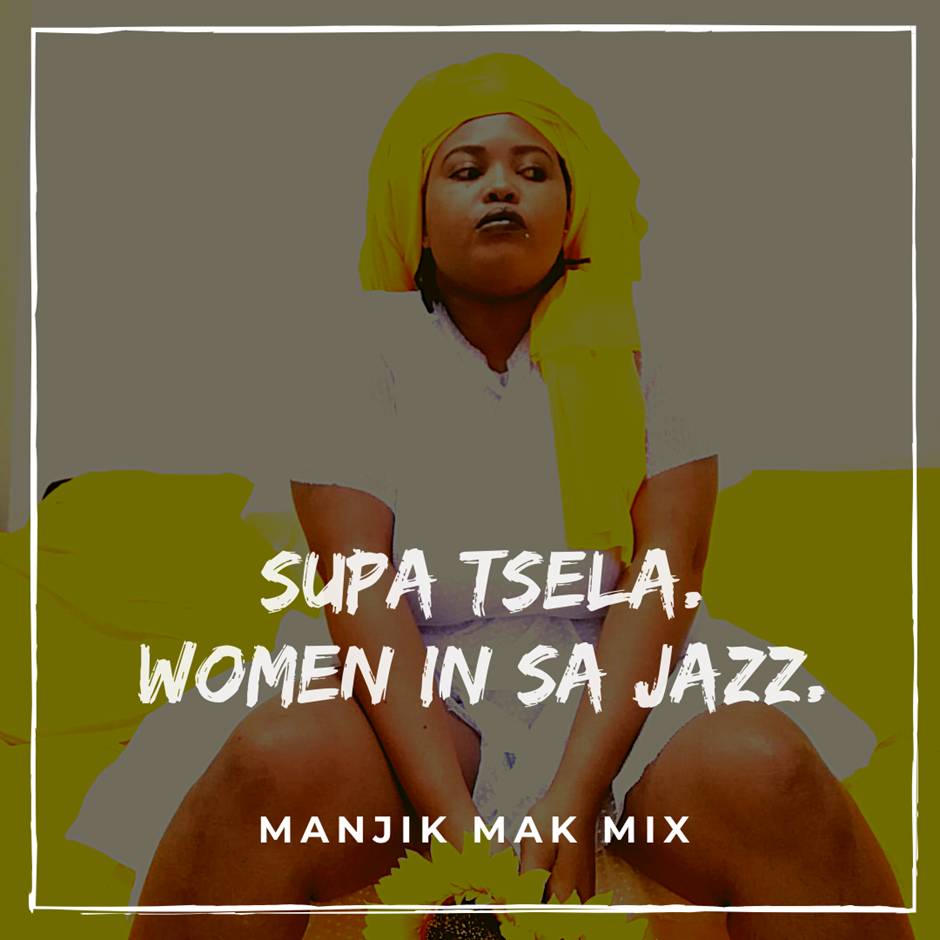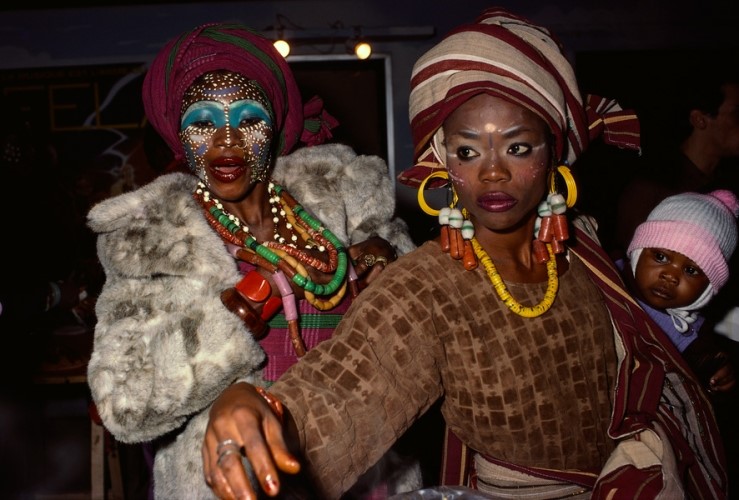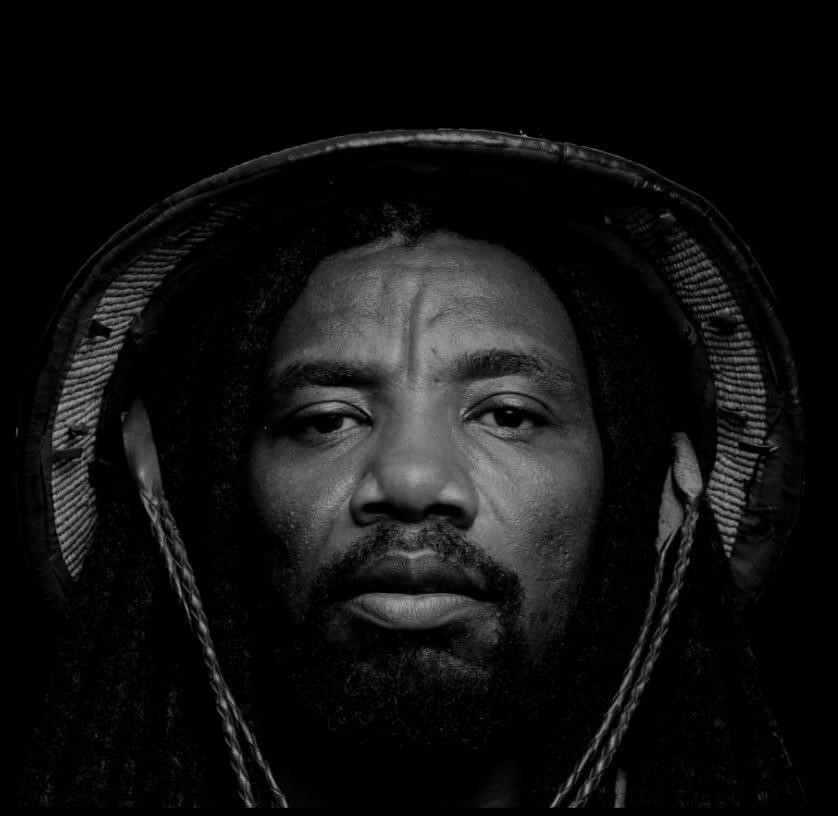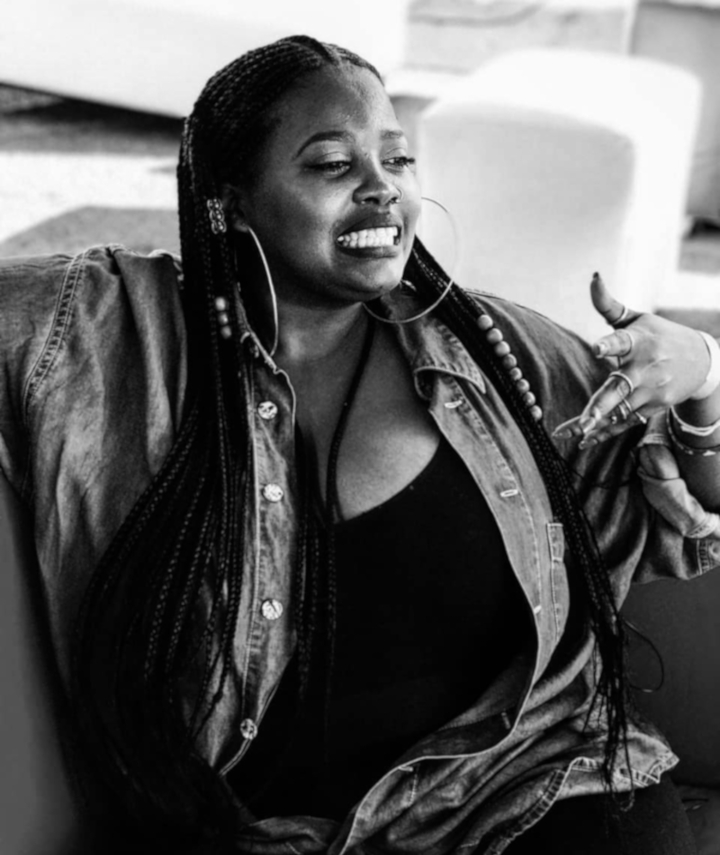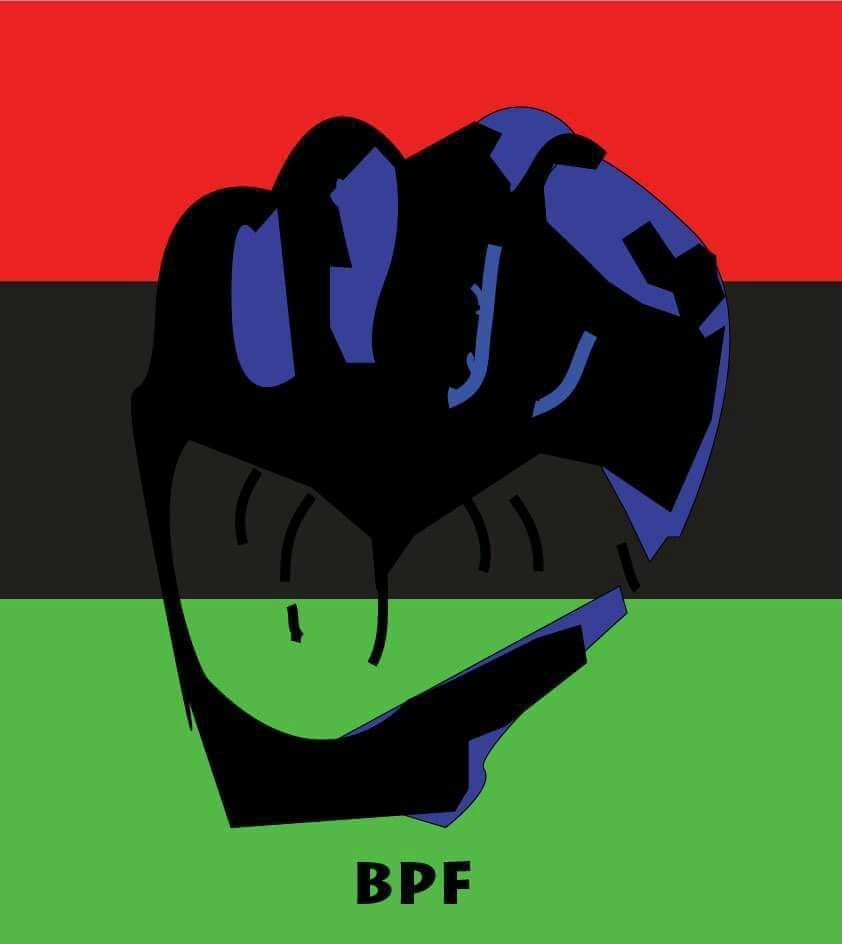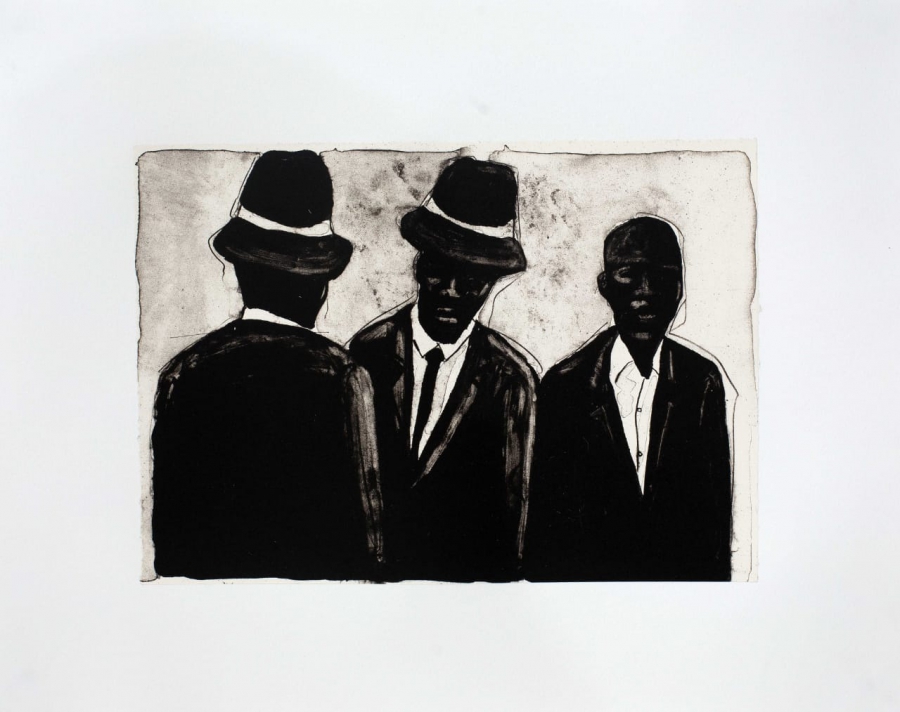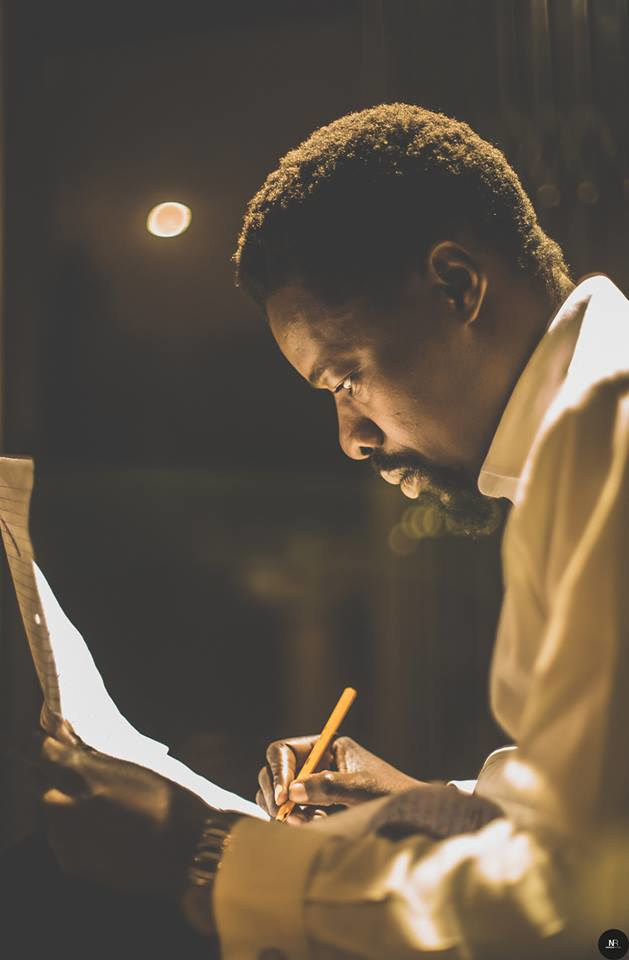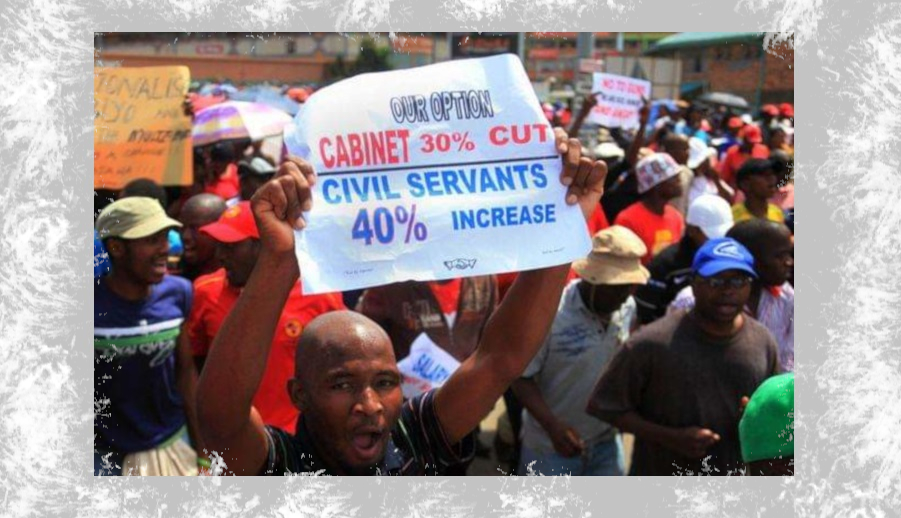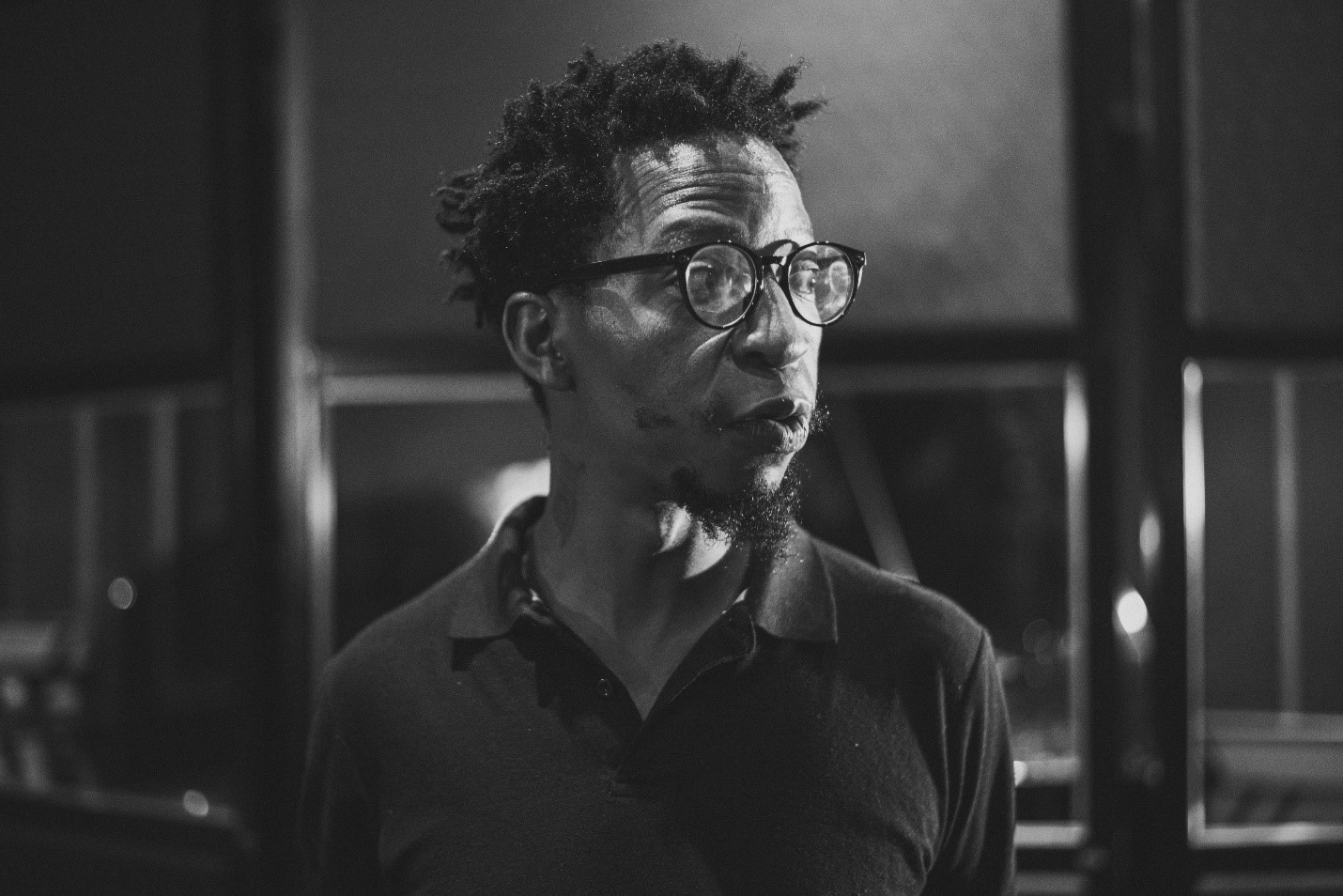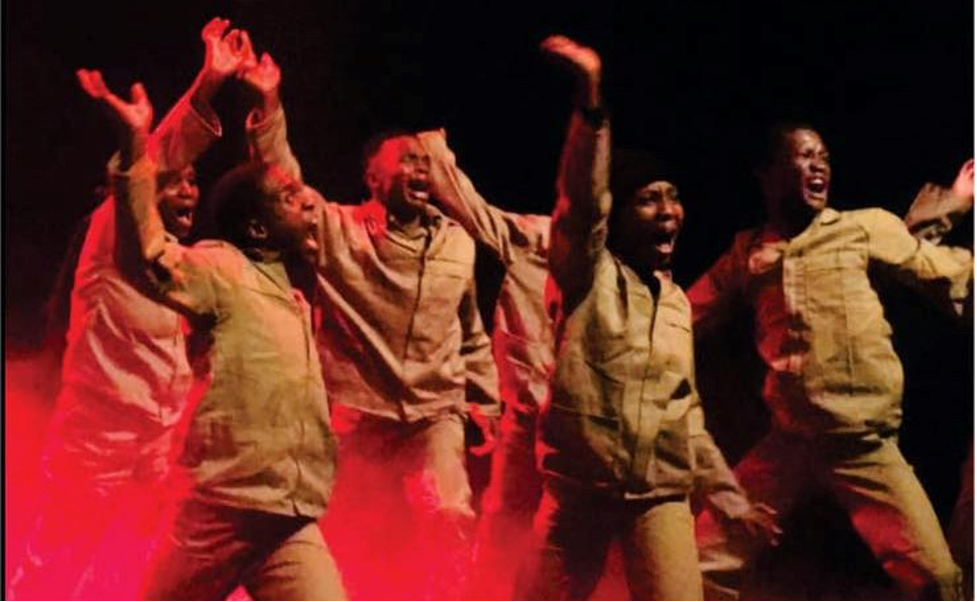Femi Koya, a contemporary Fela Anikulapo Kuti, ploughs a familiar furrow, with a strong focus on the horns and plenty of up-tempo percussions. The Ankara-draped musician exudes such vitality and vigour. Koya is not your typical band leader, although he takes center stage during performances, his repertoire relies on how he seamlessly blends his voice, style and saxophone into the band’s overall sound. He carries out a groovy trademark paired with his entrancing narrative voice, that, matched with his band’s background vocals, paired with muscular drum lines among other well-timed indigenous African instruments, creates an amazing synchronicity. His sound, a high-energy gumbo that compels one to dance but is nuanced enough for one to immerse themselves in and simply listen.
There is a man behind this brilliant sound and he was once a boy who had no interest in music despite the fact that his brother ran a music school right in their house. After his brother had left home and the music was vacant, Femi, a young soccer player picked up the trumpet for the first time. He soon enrolled at a music school but later turned his attention to another instrument, the saxophone, popularized by some of his idols such as Mano Dibango and Fela Kuti, this would be the start of a cross-genre experimentation. He describes this sound as a crossbreed between Afrobeat and Jazz, a South West- South African sound.
“Being African imbues one with spirituality. Music is in itself spiritual, being on stage is spiritual.”
Femi interprets his music with this approach, as an activist for continental unity, the political is personal and the personal is often spiritual. Femi's politics are profoundly ingrained in his language choice.
"I tend to deliver in the language of the heart," he says explaining his choice in predominantly using Yoruba and IsiZulu in his songs. The way he writes melodies and employs rhythm sounds very much like him. There is an imaginative DNA and fingerprint in each of his songs. His spirit – evident in his charismatic singing and expressive horn.

Alafia - A Cry For Peace
Femi Koya's songs express his hope for a better African state, and with Alafia, a Youruba name that means peace, he expresses his desire for a stable continent. This track with a hypnotic groove features beautiful blends of West African sounds with an influence of Caribbean resonances that engulfs the listener, detailed with saxophone breaks and accompanied by a steady constant percussive rhythm, it shows, Femi has a refreshing take on politically inclined subjects. He is unambiguous about his feelings towards Africa's political leaders, but he takes a different approach from that of the late anarchist, Fela Kuti. Femi has no desire to speak truth to power, his mission is to conscientize the masses.
“I’m not worried about the government. I’m worried about the people,” he stresses, alluding to how long the journey for a revolution may take, although he will not be deterred.
“The battle cannot be fought and won with one song, it's continuous, one has to keep on singing.”
Femi is yet to tire from his activism, he is currently in the studio working on two albums Lagos Highlife and Afrobeat According to Jazz to be released later in the year. For the time being, he is looking forward to sharing his current music on stage.
Femi, who will perform at Afro Art SA’s Rhythm and Blues Virtual Concert, is excited to perform his recent single, Alafia, as the highlight of his performance.
“This song is dedicated to Africa, which is a ticking time bomb. Peace is what we seek in every part of Africa and for every part of the world.”
He is most excited by his collaboration with composer and trumpeter, Mandla Mlangeni which will be revealed at this concert.
*Catch Femi Koya on the Rhythm & Blues Virtual Concert on the 28th of May 2021 alongside Siya Makhuzeni, Yonela Mnana, The Brother Moves On, among many other amazing musicians.

